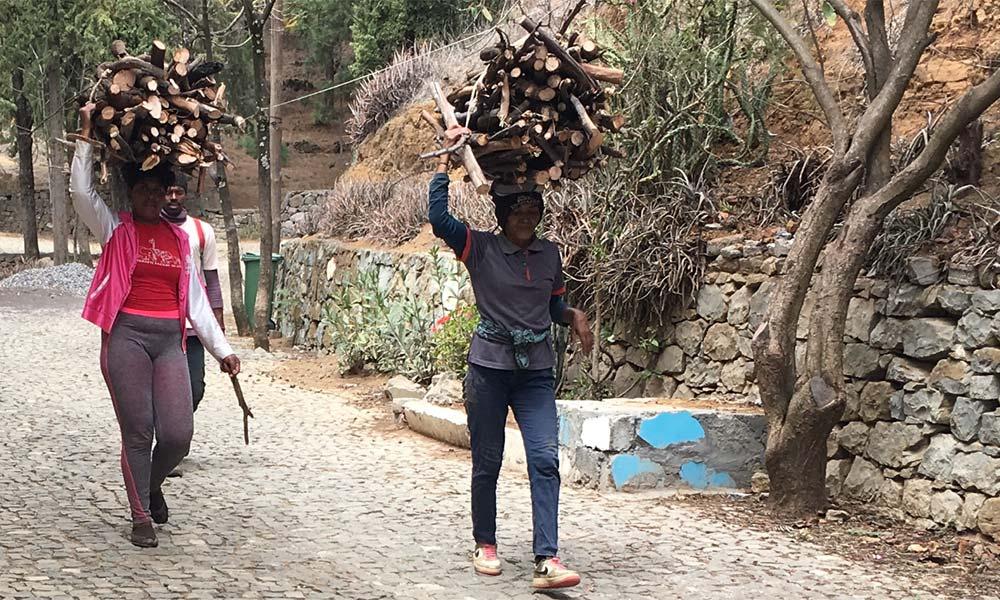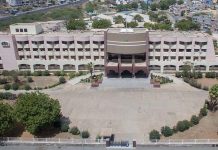Africa-Press – Cape verde. The country is in calamity. There is no one who does not live in the countryside who does not experience difficulties due to the persistent drought that has affected the country for four years. In Santo Antão, rural families, livestock farmers, are distressed by the crisis scenario and ask for “help” to face the economic difficulties caused by the lack of rain. There are those who fear hunger.
From the north to the south of the island of Santo Antão, the situation is the same. Rural communities are doing everything they can to mitigate the effects of a severe drought that has wiped out, in many localities, agriculture and put livestock farmers in constant struggle, in search of pasture and, often, water.
Lack of pasture and water crisis in several locations
Nilton Monteiro, a farmer and cattle raiser in Lagoa, East Plateau, is going through a difficult and distressing situation. In addition to facing the lack of pasture for the animals and the aridity of the soil, he experiences a frequent water crisis, to the point of choosing between quenching his family’s thirst or that of the animals.
“I have half a gallon of water at home. Since yesterday the animals have not been drinking because there is no water. Unfortunately we have to choose between the animals and us. The amount of water we have available does not satisfy our personal needs and neither does that of the animals”, complains this breeder who talks about the constant lack of water and the high cost that he says is, the cheapest, 2,000 escudos per ton .
The lack of water is mixed with the difficulty of finding pasture to sustain the animals, turning into a problem to maintain the creation and make a profit.
In the case of Nilton, due to the “poor feed” he provides to the cattle, milk production is poor and, consequently, he cannot produce enough for sale.
Kill not to die
The situation becomes critical when he is forced to slaughter the animals or sell the cattle at the expense, in an attempt to obtain some income and avoid the death, essentially, of goats. In the case of Nilton alone, 20 have died.
Check vouchers don’t seem to help, as breeder João Vitor, also from Lagoa, says. In addition to facing difficulties in finding the amount to readjust the amount of a bag of feed, this supplement is not always available on the market and does not meet demand.
“A bag of feed is very expensive. The $520 checks don’t help much. We are already facing economic difficulties due to the drought, it is difficult to find the remaining money to readjust a bag of feed that costs more than two thousand escudos. In addition, when we go to buy, we don’t find food available because they arrive and finish at the same time and we, from rural communities, are the most affected because we are far from the point of sale in the city”, he tells A NAÇÃO.
The situation is repeated in several locations. Corda, Água das Caldeiras, Chã de Pedra, Ribeira dos Bodes, Ribeira das Patas, Paul and several other areas, mainly those that practice rainfed agriculture. Wherever you go, the complaints are the same.
With the drought, the number of unemployed farmers grows and it is, more and more, the rural families that have resorted, more frequently, to the stores to buy food that they used to grow, thus increasing the cost of living of these families.
No work and starving
In Água das Caldeiras, also in the East Plateau, A NAÇÃO met the farmer Alfredo Monteiro.
Luckily or not, that day, he managed to work a few hours on a small project, but that’s not always the case. With agricultural activity interrupted, due to the lack of rain, Alfredo spends most of his time stopped, “with the will to work”…
There are ten people in her family, nine unemployed and dependent on a female head of the family who earns 249 escudos a day in forest conservation work (read below). A paltry income that leaves the whole family in serious difficulties.
“We can go a day without eating, or we can only eat one meal a day. You can’t buy food and pay expenses. The difficulties are immense”, Alfredo tells our newspaper.
If the scenario were different, with more rain, as our interviewee says, the whole family would be employed, even if temporarily, but the drought accentuated the unemployment experienced in this area and in all other rural areas and even in the urban center.
“Amupal president warns of “critical situation”
In Água das Caldeiras and in all the others, which also practice rainfed agriculture, the situation is critical, as the president of the Women’s Association of the East Plateau (Amupal), Josefa Sousa, warns.
This community leader says that the drought has had a “strong impact” on families, with some going hungry, as is the case of female heads of household and unemployed.
The association itself resents the drought and the impacts of the covid-19 pandemic.
Made up of 13 women, Amupal is dedicated to fruit processing and terrace tourism. With the drought, local fruit production has disappeared and tourist groups are dwindling due to the impact of the pandemic.
“The situation is difficult. All agricultural products are expensive, very expensive! Due to this drought we are not processing local fruits. We have been buying fruit from other locations, but at a very high price and the gain is almost nothing. Every now and then we get a group of tourists, but it’s not worth it”, explains Josefa.
All these difficulties have made it impossible for the association to help the female heads of beneficiary families in Água das Caldeiras, much to the sadness of the president of Amupal, who feels the suffering of heads of families in despair.
fear of hunger
The rise in the prices of basic necessities made everything worse in the already difficult life of those who live in the rural areas of Santo Antão.
What was already difficult has become more difficult. It is the example of the women who work in the conservation of the forest perimeter of the East Plateau. The NATION talked to two.
Joana Baptista and Francisca dos Santos earn 249 escudos per day from the Ministry of Agriculture and Environment.
If already with guaranteed water, the income didn’t help, in times of drought and global crisis, it becomes a shame, as one of them says.
“My performance is a disgrace. It doesn’t do much. There are ten of us in a house and only I work. It is almost impossible to support the family with this income”, says Francisca dos Santos, 55 years old.
Francisca is afraid of hunger. The monthly income of around 5,000 escudos, if you go to work every day, is barely enough to buy a bag of rice, oil and spices and pay for electricity, water and school transport. The difficulties of bringing the pot to the fire have never been greater.
“When it rains we always get an extra income, but the drought made it worse. Sometimes there is nothing to cook. We have reduced what was already little, often with just one meal a day,” she says.
Joana Baptista, 59, also goes through the same difficulties. Come rain, shine or wind, she continues to work to secure the daily 249 escudos, otherwise, as she says, she starves.
“I have to guarantee, at least, the rice. As long as there is salt, we can cheat hunger”, he tells our report.
concerned associations
The situation of heads of families affected by drought in Santo Antão worries the island’s community associations.
The Association Ponta de Cinta de Corda and Luz Viva de Lagoa, both in the East Plateau, warn of mass unemployment, lack of water and a growing number of families living in poverty.
With agriculture and livestock conditioned, the solution has been to sell the cattle for cheap.
In the Corda area, a cow that cost 100,000 escudos now costs up to 30,000 escudos, as pointed out by the Ponta de Cinta Association.
Associative leaders and all rural communities ask for more assertive measures – from the Government and the City Council – to help families and so that they can feel, in practice, the impacts of emergency plans.
This cry for help, as Josefa Sousa, from Amupal underlines, mainly covers the heads of families in rural communities.
For More News And Analysis About Cape verde Follow Africa-Press






